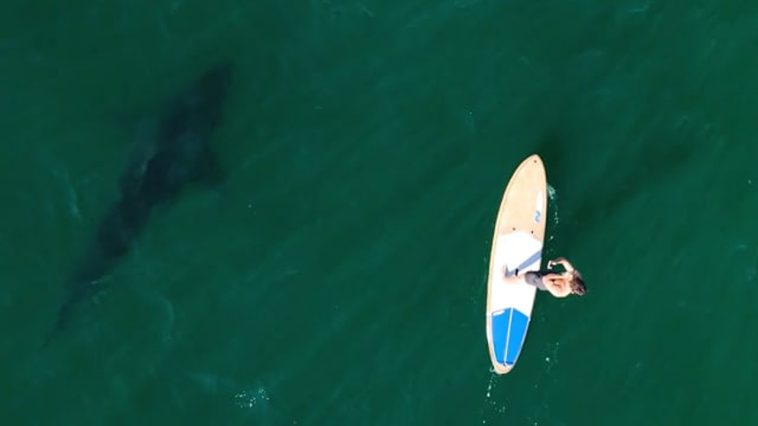In a tragic turn of events on an Australian beach, a 15-year-old boy fell victim to a shark attack while surfing alongside his father. The young boy, named Khai Cowley, was known for his skill and talent in surfing. The terrifying incident transpired at Ethel Beach, within the boundaries of the Innes National Park, where he was dragged out of the sea after his leg had been severed by what is suspected to be a great white shark.
Emergency services were swiftly called to the scene to provide medical support for Cowley’s severe wounds. Despite the haste and efficiency of the paramedics, they regrettably could not prevent the young surfer’s life from slipping away. This gruesome tragedy has sparked an outpouring of emotion and mourning for the adolescent on various social media platforms.
Situated off the Yorke Peninsula in southern Australia, Ethel Beach is a widely-frequented yet secluded destination for tourists. The idyllic appearance of this serene location belies the sometimes lethal wildlife it houses. Disturbingly, Cowley’s encounter with a shark at this site is not an isolated incident, as local residents assert.
In particular, a local fisherman spoke on the commonality of shark sightings around Marion Bay, a near vicinity of Ethel Beach. This detail, while illuminating, further highlights the prevalent risk encountered by visitors to the area. Moreover, this peril is not mitigated by their familiarity with the wildlife there.
Just a fortnight prior to this horrific loss, Cowley had been recognized by his local surf club, Seaview Road Board Riders, as the ‘most outstanding grom performer’. The term ‘grom’, or, alternately, ‘grommet’, indicates young surfers under the age of 18. At the time, Cowley had impressively secured a national ranking of 146 amongst his age group in the country.
Worryingly, Cowley’s fate is part of a seeming trend of comparable mishappenings of late in Australian waters. Just last November, a similar tragedy had befallen surfer Tod Gendle near Streaky Bay, a mere distance north of Marion Bay. Gendle, aged 55, was knocked off his surfboard and pulled under by a shark amid a group of his fellow surfers.
He was violently shaken and subsequently pulled down by the aggressive creature before succumbing to the fatal attack. Significantly, this attack is an illustration of the increasingly common interaction between humans and sharks in Australian waters.
Yet another incident occurred back in October when a woman named Pam Cook was assailed by a shark close to Beachport’s jetty. Luckily, Cook endured only injuries to her leg but the event stands as a stark testament to the heightened occurrence of such encounters.
Drawing on global data, it is observed that Australia ranks relatively high in terms of the number of recorded shark attacks. Evidence from the International Shark Attack File confirms that only the United States surpasses Australia in this regard. This piece of information demands attention and action from local authorities.
In the light of these incidents, there is a heightened sense of fear and caution among surfers and swimmers frequenting Australian waters. It has become crucially imperative for natives and tourists alike to stay informed about the presence of dangerous wildlife in their vicinity. Accidents like these highlight the constant need for vigilance and safety measures whilst interacting with the natural environment.
It is important to note that while these incidents are undeniably alarming, they represent a small fraction of the interactions between people and marine life. The vast majority of aquatic wildlife poses no threat to humans; in fact, human activities often pose a more significant danger to them.
However, tragedies like the untimely demise of Khai Cowley underscore the risks of certain recreational activities and the need for appropriate safety precautions. It is a reminder that humans share these spaces with marine creatures, some of which can be dangerous.
The loss of Khai Cowley is not only a sorrowful event but also serves as a sobering wake-up call for inhabitants and visitors to Australia’s shores. A better understanding of shark behaviour, combined with improved safety measures, could potentially reduce the number of similar tragic incidents in the future.
As sorrow engulfs the country in the wake of this tragedy, it becomes evident that human lives can’t be quantified, and preventative measures hold the utmost importance. In high-risk areas like these, being aware and respecting the space of local wildlife may go a long way in ensuring that incidents like these become less frequent in future.



